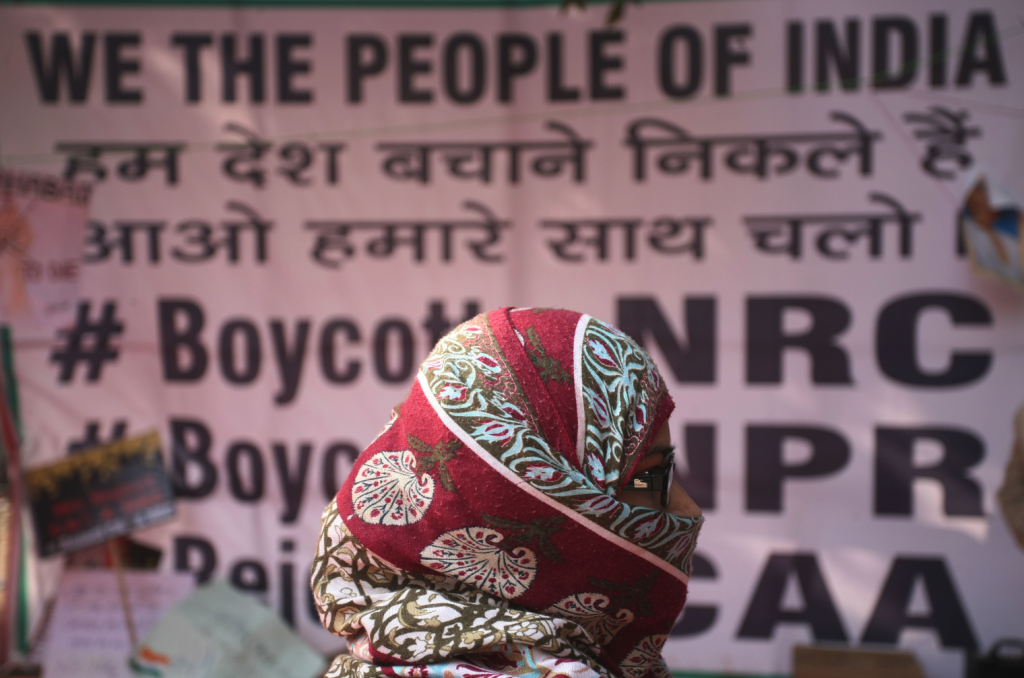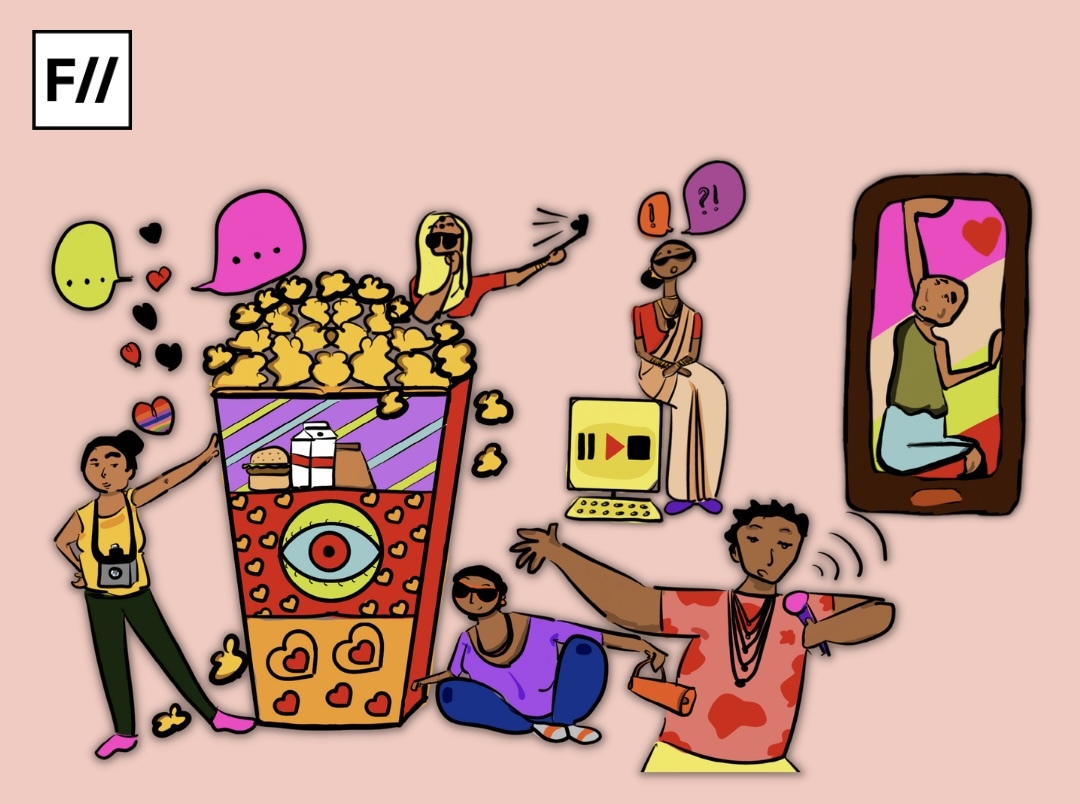Fascism, in simple words, is a political system where only one person or a certain group holds all the power and is empowered to control every aspect, from government to personal beliefs to media and even daily behaviours.
Extreme nationalism is where fascism finds its roots and thrives on showing an ideal vision of the nation. It often blames vulnerable groups such as minorities, women, or outsiders for its perceived problems. Those who dare to speak up, question, demand rights or raise their voice in such systems are seen as threats because disagreements are treated as disloyalty. But the fact is that fascism is not solely about dictatorship.
Thought, behaviour, education, clothing, etc. determine total control and fascism is about total control.
While fascism thrives on dominance and hierarchy, feminism demands equality, justice, and freedom for all—irrespective of gender, caste, religion, or class. The two are fundamentally opposed.
Women and their autonomy are one of the most immediate targets of fascist regimes. Traditional values are often glorified, narrowing women into roles such as those of obedient wives, sacrificing mothers, and symbols of the nation’s honor.
Fascist ideologies often grow out of deeply patriarchal systems. In fact, fascism is almost always built on patriarchy, where upper-caste, upper-class men hold the most power, and others—especially women, queer people, and marginalised communities—are expected to follow orders and remain silent.
Women and their autonomy are one of the most immediate targets of fascist regimes. Traditional values are often glorified, narrowing women into roles such as those of obedient wives, sacrificing mothers, and symbols of the nation’s honor.
Often women who dare to work outside their homes, demand rights or just resist these traditional roles in any way or the other are termed as immoral or “anti-national.” Such regimes not only put women into roles but also try to control their bodies, often restricting their clothing choices and their right to abortion and contraception, and punishing queer love, all in the name of “protecting culture” or “protecting the nation.”
Silencing fear and instilling resistance both physically and psychologically comes at a cost of violence. Fascist regimes have been particularly known to enforce sexual violence against women from subjugated societies.
This infliction of violence is not by chance. Alongside being violent, women journalists, activists, and even students endure being trolled online, falsely prosecuted, and even shamed in public, which is a form of violence designed to silence them.
Feminism and fascism have coexisted hand in hand for a long time. Nazis in Germany have feminism bound to the hearth by forcing women into the domestic sphere as mere producers of Aryans. Women of Jewish, Roma, disabled, and queer backgrounds faced severe misogyny.
Women in Mussolini’s Italy also had a hard time liberating themselves from the shackles of daily discrimination that systematically drowned women in oppression, such as child marriage and bearing a multitude of children.
Likewise in Franco’s Spain, women were under Church and state rule, which barred the right to use birth control and divorce, and many non-complying women were imprisoned. Rather than being treated as human beings with rights, women’s citizenship was stripped under these regimes.
India is not immune to these patterns, even if the rhetoric is couched in different terms. Today, women are often asked to “preserve Indian culture,” and those who challenge dominant narratives—especially Muslim women, Dalit women, and feminist journalists and activists—face online abuse, state surveillance, and even legal persecution.
These are not isolated incidents. They are part of a broader pattern designed to suppress dissent and maintain control.
Fascism is oppressive to everyone, but it causes the most significant harm to individuals who are already marginalised. Dalit women, for example, navigate the combined burdens of caste, gender, and state violence.

Muslim women are doubly targeted—by both Islamophobia and patriarchy. Queer and trans individuals are pushed further into invisibility. And working-class women bear the brunt when social services, education, and healthcare are defunded.
Yet, against these odds, feminist resistance has always risen. In 19th-century India, Savitribai Phule and Fatima Sheikh fought caste and patriarchy by opening schools for girls and Dalits.
Activists like Medha Patkar have challenged large-scale development projects that displace the poor—especially women.
Around the world, from Iran to Latin America, feminist movements have demanded justice, toppled oppressive laws, and reimagined more inclusive societies.
Feminism challenges fascism not just with protest but with values. It insists on dignity, safety, and choice for all. It believes in shared power—not concentrated control.
It sees strength in diversity and demands that those from the margins—Dalits, Muslims, Adivasis, and queer folks—be given space to lead. Where fascism seeks sameness, feminism celebrates freedom. That’s the real clash.
Why feminism must always stand against fascism
Fascism doesn’t only threaten political freedom—it threatens the very idea of equality. For women, queer people, and those at the margins, it tries to roll back decades of progress. While it may disguise itself in nationalism or tradition, fascism at its core is about control. And that control begins by telling women what to do, what to wear, and where they belong.

Through a feminist lens, we can begin to see how these power structures work—and why dismantling them is essential for any just and equal society.
Feminism reminds us that resistance doesn’t always look like loud slogans or viral hashtags. Sometimes, it’s in the everyday courage of questioning, of protecting each other, and of keeping stories alive. In the face of rising authoritarianism around the world and in India, feminist politics offer not just critique—but hope, solidarity, and alternatives rooted in care and justice.
So how do we recognise when fascism is on the rise? The signs are often subtle at first: leaders discrediting the press, attacking students or courts, or normalising hate speech against minorities.
When history is rewritten, artists censored, or protesters jailed, we must ask: Are we moving towards fascism? Are we staying silent when we should be resisting?
Feminism offers us a path forward. It teaches us to ask tough questions: Who is being blamed?
Who is being silenced? It reminds us to support grassroots movements, protect safe spaces, and call out hate—no matter where it comes from. It asks us to learn from history, vote wisely, and show up for each other in big and small ways.
Because fascism doesn’t always arrive with tanks and uniforms. Sometimes, it enters quietly—through fear, through silence, through law.
That’s why feminist resistance matters. It isn’t just about women—it’s about justice, voice, and humanity. In a world trying to shut us down, feminism is a loud, loving, and powerful ‘yes’—to freedom, dignity, and life.
About the author(s)
Anushka Bharadwaj is a journalism graduate from SCMC Pune. She is an intersectional feminist with a deep interest in gender, caste, politics, and mental health. When she’s not writing or reading, she’s usually found lost in poetry, dancing to her favourite songs, or discovering new music—always reflecting on the world through stories.





